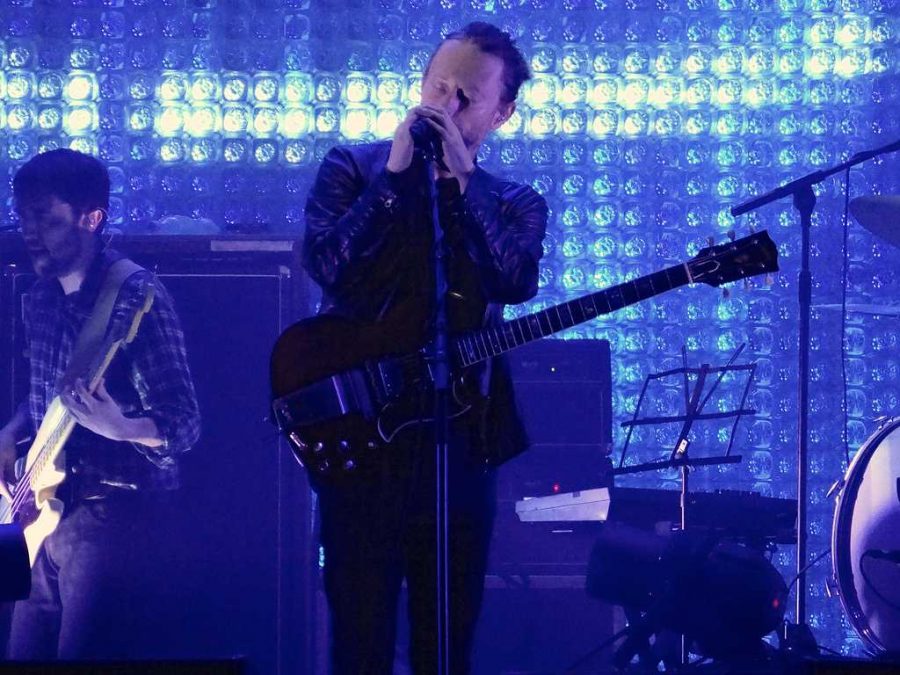Everyone always talks about how amazing the Beatles were, and inevitably comparisons to modern acts follow. Without a doubt, Radiohead is the band who picked up where the Beatles left off. Just like the Fab Four, they came out of a British music scene making pop rock similar to other bands at the time (think “Twist and Shout” and “Creep”), but over the course of several years, they evolved with experimentation that pushed the conventions of what rock music could be.
The beginning of Radiohead’s significant influence starts with the 1997 record OK Computer, which marked the first shift away from Britpop and into the melancholic and atmospheric expression that would dominate the next twenty years of alternative rock music. The height of this experimentation was Kid A. Released in October of 2000, Radiohead started the new millennium off with what would become the most important album of the decade.
It took eighteen months to finish, but the boys from Abington created an album that is puzzling, dreamy, and challenging. The very first few seconds of Kid A already defy expectations. “Everything in Its Right Place” sets the mood with pounding synths that feel like extraterrestrial contact, with Thom Yorke’s crooning voice flowing over the steady rhythm. The title track follows, featuring heavenly chimes and a mysterious vocal section.
“The National Anthem” has possibly one of the catchiest basslines of all time, and the way it ends with a cacophonous explosion of horns was unheard of in the realm of popular music. “How to Disappear Completely” is next, and it is Radiohead’s greatest achievement. It oozes atmosphere with every note. Strings slide effortlessly between the left and right stereo channels as the song gets more and more intense, and Thom Yorke is in his prime.
“Treefingers” is a bold statement on the endless capabilities of the guitar, and it is the perfect prologue to “Optimistic”, the hugely rhythmic and epic stadium song that leads into the second half of the album. “In Limbo” is another purely atmospheric track that spirals into “Idioteque”, an absolutely genius mediation on sampling and the use of computers in music.
The penultimate song “Morning Bell” showcases more effortless electronic experimentation before the beautiful finale “Motion Picture Soundtrack.” Here, an organ emerges from the vast landscape of cold synthetic music to bring the album to a gorgeous close, compete with stunning harps and a choir that sounds borderline angelic.
My personal experience with these ten songs has been odd. I hated this album at first; I wanted more guitars, more riffs, more simplicity. By the tenth or so listen, I could imagine Thom Yorke and Johnny Greenwood recording and orchestrating their masterpiece in the hallowed Abbey Road studio, channeling their inner McCartney and Lennon for the modern age. Like the Beatles’ later work, Radiohead’s Kid A is paradoxically drenched with the feeling of the era in which it was born but also sounds like it was released today.
“I was 19. I was ready to listen to music in a different way. Not only were they filled with great songs, but the sound of them really affected me…They transformed whatever world I was in at the time. And eventually led to my desire to make my first solo record.” -Justin Timberlake
“Their music talks to you, in a real way. It can take you down a quiet street before it drops a beautiful musical bomb on you….They followed their most critically acclaimed record, OK Computer, with their most radical change, Kid A. It’s not that they’re indifferent — it’s that the strength of character in their music is beyond their control.” – Dave Matthews
“They just experimented with their soundscapes and how far they could push what they’re doing…I can’t think of anybody else that could have done it” – Danny Brown
Key Tracks: All of them
Photo provided by Daniele Dalledonne

